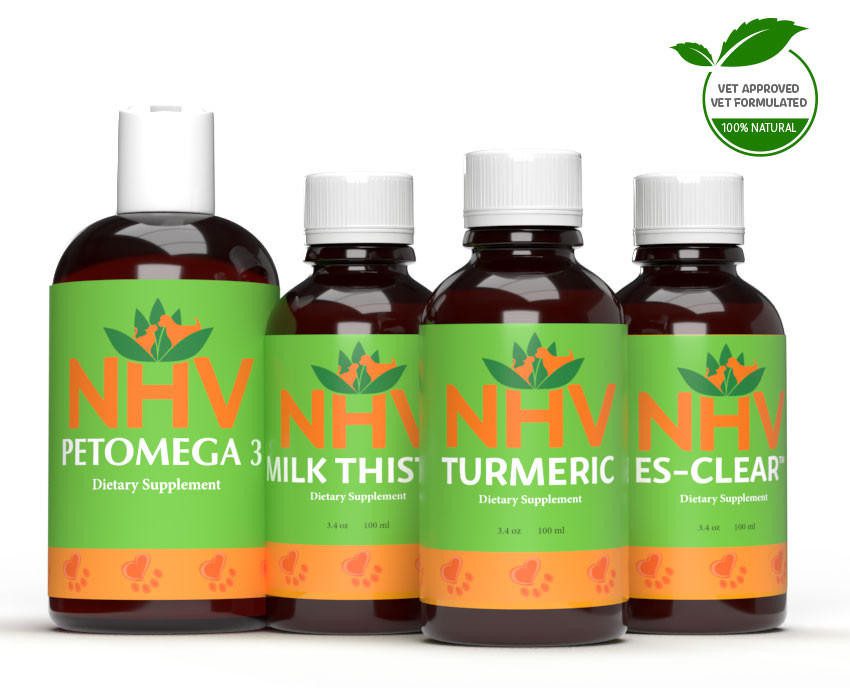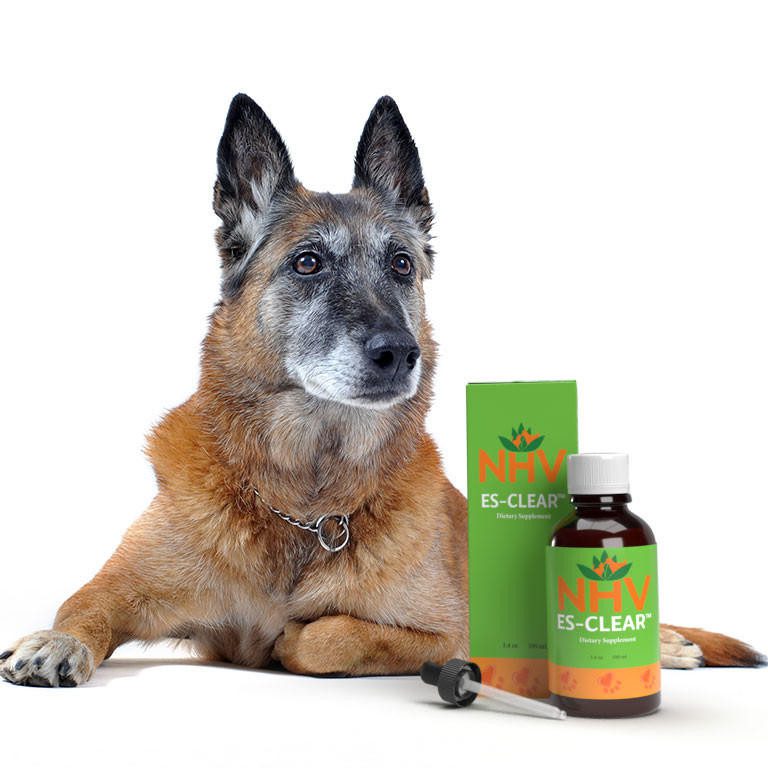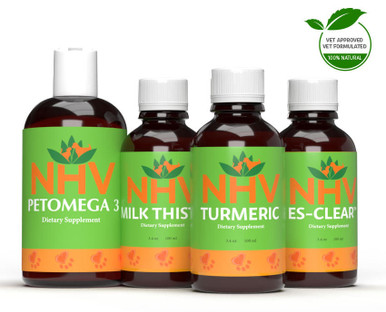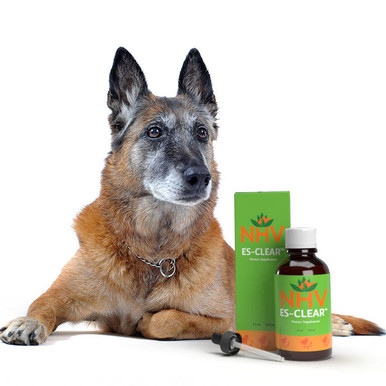cancer support

free shipping over $100 (USA & Canada)
1-877-937-4372 the pet expert hotline

PetOmega 3, Milk Thistle, ES-Clear, Turmeric



Squamous cell carcinoma in pets is a significant concern for pet owners and veterinarians alike. This form of cancer can affect various areas of a pet’s body, leading to discomfort and potentially serious health issues. Understanding the symptoms, treatment options, and prevention strategies for Squamous cell carcinoma is crucial for safeguarding the well-being of our furry companions.

Recognizing the symptoms of Squamous cell carcinoma in pets is vital for early detection and intervention.
Squamous cell carcinoma can manifest in different areas of a pet’s body, including the skin, oral cavity, and mucous membranes. Pets, especially those with light-colored fur or exposed skin, are more susceptible to Squamous cell carcinoma in areas frequently exposed to sunlight or irritants. It’s essential to monitor these areas closely for any signs of abnormal growths or changes.
Recognizing the symptoms of Squamous cell carcinoma in pets is vital for early detection and intervention. Common signs include the presence of lumps or growths, ulcers that do not heal, bleeding from affected areas, difficulty eating or swallowing, and changes in behavior or activity level. If you notice any of these symptoms in your pet, it’s essential to consult your veterinarian promptly for further evaluation.
Diagnosing Squamous cell carcinoma in pets typically involves a combination of physical examination, biopsy, imaging tests such as X-rays or ultrasound, and laboratory tests. These diagnostic procedures help veterinarians assess the extent of the cancer and develop an appropriate treatment plan tailored to the pet’s needs.
Treatment options for Squamous cell carcinoma in pets vary depending on the location and severity of the cancer. Common approaches include surgery to remove the tumor, radiation therapy to target cancer cells, chemotherapy to slow tumor growth, cryotherapy to freeze and destroy abnormal tissue, and immunotherapy to boost the pet’s immune system. Your veterinarian will recommend the most suitable treatment based on your pet’s condition.
The prognosis for pets with Squamous cell carcinoma depends on several factors, including the stage of cancer, the location of the tumor, and the pet’s overall health. Early detection and intervention can significantly improve the chances of successful treatment and long-term survival. It’s essential to work closely with your veterinarian to monitor your pet’s progress and adjust the treatment plan as needed.

While it’s not always possible to prevent Squamous cell carcinoma in pets entirely, there are steps pet owners can take to reduce the risk. Limiting sun exposure, providing shade and shelter, using pet-safe sunscreen or protective clothing, and avoiding exposure to environmental toxins can help minimize the likelihood of developing Squamous cell carcinoma. Additionally, scheduling regular veterinary check-ups for skin and oral health screenings can aid in early detection and intervention.
In addition to conventional treatments, some pet owners may consider complementary therapies to support their pet’s overall health and well-being during Squamous cell carcinoma treatment. NHV supplements, formulated with natural ingredients, can play a supportive role in enhancing the immune system, promoting healing, and reducing inflammation.
ES Clear: A formula containing herbs to support and fight cancers. The herbs in this blend may help reduce tumor growth, purify blood, and help detoxify vital organs. Further, it helps support the immune system and improve quality of life, vitality, and energy levels. Promotes digestion and aids with appetite.
Milk Thistle: Silybum Marianum, or Milk Thistle, has been used for over a thousand years as a remedy for various types of liver diseases. In fact, studies have shown that Milk Thistle can decrease or reverse damage to the liver and kidneys. It can detoxify the liver and kidneys by removing toxins that can build up in a pet’s system when taking pharmaceuticals, chemical-laden foods, or especially during cancer chemotherapy. Milk Thistle also has antioxidant properties and may benefit as an anti-cancer.
Natures Immuno: is a blend of medicinal mushrooms (turkey tails, cordyceps, reishi, shiitake, and Agaricus) that may offer extensive health benefits for dogs and cats.
These medicinal mushrooms have been extensively researched for their tumor-fighting abilities. Therefore, it will be beneficial as an anticancer and anti-tumor support in Squamous cell carcinoma. Furthermore, it helps increase energy and promotes general pet well-being while helping balance a pet’s immune system.
Petomega 3: contains Eicosapentaenoic Acid (EPA) and Docosahexaenoic acid (DHA), which may help support dogs and cats with Squamous cell carcinoma. Further, it may help prevent weight loss, decrease inflammation, and inhibit metastasis (spreading of the cancer into other organs). Moreover, it includes fish oil, a rich source of omega-3 fatty acids critical for a healthy brain and heart, and contains Vitamin D, which may balance the immune and nervous systems.
Turmeric: The active compound in Turmeric is Curcumin, which is well-known for its anti-inflammatory, antioxidant, antiseptic, and wound-healing properties. Further, it improves antioxidant function while scavenging free radicals, which provides an anti-cancer effect. Moreover, it helps the liver eliminate toxins and improve overall health.
All four vet-formulated supplements, ES Clear, Milk Thistle, Pet Omega 3, and Turmeric, are found in the Cancer Fighter Pack (Cancer Kit 4) at a discounted price, while ES Clear, Milk Thistle, Turmeric are found in the Pet Cancer Super Support Kit (Cancer Kit 3).
Regular veterinary examinations are essential for maintaining your pet’s overall health and well-being. In addition to routine vaccinations and preventive care, these check-ups allow veterinarians to assess your pet’s skin and oral health, screen for any abnormalities, and detect potential issues such as Squamous cell carcinoma at an early stage. By staying proactive about your pet’s health, you can help ensure timely intervention and optimal outcomes.
For pets diagnosed with Squamous cell carcinoma, supportive care and palliative treatments play a crucial role in managing symptoms and improving quality of life. This may include pain management, nutritional support, and therapies to alleviate discomfort and enhance well-being. Your veterinarian can provide guidance on the best approach to supportive care for your pet’s specific needs.
Squamous cell carcinoma in pets is a complex condition that requires comprehensive management and ongoing support. By understanding the symptoms, treatment options, and prevention strategies associated with Squamous cell carcinoma, pet owners can take proactive steps to safeguard their pets’ health and well-being. Remember to consult your veterinarian if you have any concerns about your pet’s health or notice any signs of Squamous cell carcinoma, as early detection and intervention are key to successful outcomes. With proper care and attention, we can help our furry friends live happy, healthy lives for years to come.
cancer support

PetOmega 3, Milk Thistle, ES-Clear, Turmeric
bundle and save with pet expert kits
3 month supply for a small to medium size pet.
What is it?
A full range of natural veterinarian-formulated herbal remedies designed to help your cat or dog manage the symptoms of cancer, boost immune function, improve energy, help scavenge free radicals. Use these supplements for cat and dog cancer care to improve their quality of life.
How Does it Work?
Why Should I Trust It?
Veterinarian-formulated and approved.


What is it?
A full range of natural veterinarian-formulated herbal remedies designed to help your cat or dog manage the symptoms of cancer, boost immune function, improve energy, help scavenge free radicals. Use these supplements for cat and dog cancer care to improve their quality of life.
How Does it Work?
Why Should I Trust It?
Veterinarian-formulated and approved.

No pet parent wants to find out their pet has cancer, but not all forms of cancer are terminal. If caught early, the chances of recovery are drastically improved. In later cancer stages, the right support can provide a better quality of life for your pet. Using an integrative approach, which incorporates veterinarian-prescribed cancer treatments for pets as well as holistic and nutritional care can give your pet the best chance at fighting cancer.
Cancer occurs when abnormal cells start reproducing and eventually taking over the normal functioning cells, often uniting to form a mass or tumor in the process. Some tumors are benign (non-cancerous) but some are malignant (cancerous), and those tend to spread through the bloodstream or lymph nodes.
Cancer care for dogs and cats is critical, and at NHV, we have a wide range of holistic, natural vet-approved remedies that provide safe support to be given along with a vet-recommended treatment plan.
The cancer fighter pack contains four powerful human-grade quality products:
All of our products are third-party tested to guarantee quality and concentration with no additives or preservatives. Read our blog on how NHV’s cancer care for cat Ziggy helped him get back to his cat-hletic self.
If you have questions on the holistic approach to cancer care for dogs or cats, you can schedule a consultation because, at NHV, the health and wellbeing of your pet is our top priority.
ES Clear
Burdock – Traditionally used to eliminate toxins from the bloodstream, remove waste through urine output and a nutritive liver tonic. Used in oncology for fighting cancer due to the belief that the properties in the herbs may stop cancer cells from metastasizing. Burdock is eaten as a vegetable in Europe and Asia. Studies show the root to be high in antioxidant properties, which are beneficial in scavenging free radicals and supporting the immune system. Burdock has prebiotic properties that could improve health and digestion.
Sheep’s Sorrel – Used for hundreds of years in North America to fight cancer and support liver purification. Sheep’s Sorrel is high in vitamins and minerals and is considered to be a good source of antioxidants, which may increase the production of white blood cells and T-cells.
Slippery Elm – Helps eliminate toxins and waste by lubricating the digestive tract. High in nutrition values, used to help with irritation of the intestines and stomach. Slippery Elm is used as food in North America.
Chinese Rhubarb – Traditionally used to improve appetite and stimulate digestion. Helps the body rid itself of waste products and cleanse the bowels.
MILK THISTLE – has numerous benefits to the body; In addition to its detoxifying and anti-inflammatory properties, it is high in antioxidants. The bioflavonoid antioxidants help to increase the body’s immunity and slow down oxidative stress.
TURMERIC- The active compound of turmeric is Curcumin. Turmeric contains strong antioxidant properties and help scavenge free radicals.
NHV PETOMEGA 3 - A source of Omega 3 fatty acids derived from fish. PetOmega 3 contains vitamin A, D and E. Research has found that adding omega 3 may help the effectiveness of cancer therapies.
Select your pet's weight to determine the correct dose.
DOSAGE FOR PETOMEGA 3. To be taken once per day. Add to food based on weight chart.
Pet’s Weight Dosage
0-15 lb = ¼ tsp
15-30 lb = ½ tsp
30-60 lb = 1 tsp
60-90 lb = 1 ½ tsp
DOSAGE FOR: MILK THISTLE, ES CLEAR, TURMERIC:
To be taken twice daily. Determine your pet’s weight and then use the easy chart below to determine the correct dose. This is the minimum dosage.
Pet's Weight Dosage
0 - 15 lb = 0.5 ml
16 - 30 lb = 1.0 ml
31 - 45 lb = 1.5 ml
46 - 60 lb = 2.0 ml
61 - 75 lb = 2.5 ml
Over 75 lb = 3.0 ml
For small animals (rabbits, ferrets), avians and reptiles use 1 drop for every 2 lb of body weight.
How to Administer
Shake well before use. The easiest method is to use the dropper provide and places the drops into your pet’s food or favorite treat. You can also use the dropper and squirt directly into the pet’s mouth.
Some pets can be finicky, if this occurs consider hiding the drops in foods most pet’s love such as fish, chicken or yogurt or a favorite treat. If your pet only eats dry food then soak a few kibbles at feeding time.
For Best Results
Herbal dietary supplements are beneficial to the health and wellbeing of your pet and are safe for long-term use. Every pet responds to natural herbal supplements differently, therefore it is important to be consistent and administer the product daily. Supplements generally take two to four weeks to take effect, however this will vary from one animal to the next.
Product Storage
All NHV Natural Pet Products are pure herbal extracts and contain no artificial additives, preservatives or coloring. Shelf life after opening is 6 months and must be refrigerated after opening.
Cautions and Contraindications - MILK THISTLE, ES CLEAR
Do not use in pregnant or nursing animals. Speak to your vet before using our products. A second visit is recommended if your pet’s condition does not improve, or deteriorates after continued use of the supplements.
No pet parent wants to find out their pet has cancer, but not all forms of cancer are terminal. If caught early, the chances of recovery are drastically improved. In later cancer stages, the right support can provide a better quality of life for your pet. Using an integrative approach, which incorporates veterinarian-prescribed cancer treatments for pets as well as holistic and nutritional care can give your pet the best chance at fighting cancer.
Cancer occurs when abnormal cells start reproducing and eventually taking over the normal functioning cells, often uniting to form a mass or tumor in the process. Some tumors are benign (non-cancerous) but some are malignant (cancerous), and those tend to spread through the bloodstream or lymph nodes.
Cancer care for dogs and cats is critical, and at NHV, we have a wide range of holistic, natural vet-approved remedies that provide safe support to be given along with a vet-recommended treatment plan.
The cancer fighter pack contains four powerful human-grade quality products:
All of our products are third-party tested to guarantee quality and concentration with no additives or preservatives. Read our blog on how NHV’s cancer care for cat Ziggy helped him get back to his cat-hletic self.
If you have questions on the holistic approach to cancer care for dogs or cats, you can schedule a consultation because, at NHV, the health and wellbeing of your pet is our top priority.
ES Clear
Burdock – Traditionally used to eliminate toxins from the bloodstream, remove waste through urine output and a nutritive liver tonic. Used in oncology for fighting cancer due to the belief that the properties in the herbs may stop cancer cells from metastasizing. Burdock is eaten as a vegetable in Europe and Asia. Studies show the root to be high in antioxidant properties, which are beneficial in scavenging free radicals and supporting the immune system. Burdock has prebiotic properties that could improve health and digestion.
Sheep’s Sorrel – Used for hundreds of years in North America to fight cancer and support liver purification. Sheep’s Sorrel is high in vitamins and minerals and is considered to be a good source of antioxidants, which may increase the production of white blood cells and T-cells.
Slippery Elm – Helps eliminate toxins and waste by lubricating the digestive tract. High in nutrition values, used to help with irritation of the intestines and stomach. Slippery Elm is used as food in North America.
Chinese Rhubarb – Traditionally used to improve appetite and stimulate digestion. Helps the body rid itself of waste products and cleanse the bowels.
MILK THISTLE – has numerous benefits to the body; In addition to its detoxifying and anti-inflammatory properties, it is high in antioxidants. The bioflavonoid antioxidants help to increase the body’s immunity and slow down oxidative stress.
TURMERIC- The active compound of turmeric is Curcumin. Turmeric contains strong antioxidant properties and help scavenge free radicals.
NHV PETOMEGA 3 - A source of Omega 3 fatty acids derived from fish. PetOmega 3 contains vitamin A, D and E. Research has found that adding omega 3 may help the effectiveness of cancer therapies.
Select your pet's weight to determine the correct dose.
DOSAGE FOR PETOMEGA 3. To be taken once per day. Add to food based on weight chart.
Pet’s Weight Dosage
0-15 lb = ¼ tsp
15-30 lb = ½ tsp
30-60 lb = 1 tsp
60-90 lb = 1 ½ tsp
DOSAGE FOR: MILK THISTLE, ES CLEAR, TURMERIC:
To be taken twice daily. Determine your pet’s weight and then use the easy chart below to determine the correct dose. This is the minimum dosage.
Pet's Weight Dosage
0 - 15 lb = 0.5 ml
16 - 30 lb = 1.0 ml
31 - 45 lb = 1.5 ml
46 - 60 lb = 2.0 ml
61 - 75 lb = 2.5 ml
Over 75 lb = 3.0 ml
For small animals (rabbits, ferrets), avians and reptiles use 1 drop for every 2 lb of body weight.
How to Administer
Shake well before use. The easiest method is to use the dropper provide and places the drops into your pet’s food or favorite treat. You can also use the dropper and squirt directly into the pet’s mouth.
Some pets can be finicky, if this occurs consider hiding the drops in foods most pet’s love such as fish, chicken or yogurt or a favorite treat. If your pet only eats dry food then soak a few kibbles at feeding time.
For Best Results
Herbal dietary supplements are beneficial to the health and wellbeing of your pet and are safe for long-term use. Every pet responds to natural herbal supplements differently, therefore it is important to be consistent and administer the product daily. Supplements generally take two to four weeks to take effect, however this will vary from one animal to the next.
Product Storage
All NHV Natural Pet Products are pure herbal extracts and contain no artificial additives, preservatives or coloring. Shelf life after opening is 6 months and must be refrigerated after opening.
Cautions and Contraindications - MILK THISTLE, ES CLEAR
Do not use in pregnant or nursing animals. Speak to your vet before using our products. A second visit is recommended if your pet’s condition does not improve, or deteriorates after continued use of the supplements.

ES Clear -Helps support your pets immune system and over all wellbeing

ES Clear -Helps support your pets immune system and over all wellbeing
Published: April 29, 2024